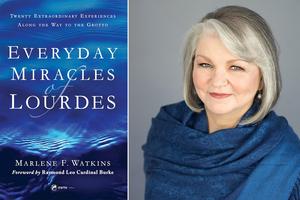Freedom Without Limits? Why the Modern World Struggles to Say No
COMMENTARY: From Chesterton to Newman, Catholic thinkers have warned that true freedom includes the ability to reject what is destructive.

G.K. Chesterton wrote Magic (1913), which was the only play of his that he saw in production. He wrote it at a time when he realized that he had to separate politics from religion since terms such as “liberal” were losing their original meaning.
In the play, he has a duke sign two checks. One is to assist in the building of a large saloon. The other is to support those who oppose its construction. It was not very long, Chesterton tells his audience, that the duke gained a reputation for being “a very liberal-minded man.”
The liberal man that Chesterton was portraying had trouble saying “No” to anyone. Society, suffering from this difficulty in pronouncing this word, needed to baptize it with a positive meaning. Therefore, this paralyzing condition, this indifference to right and wrong, was called being “liberal.” It was a practice that became popular and was spreading rapidly throughout society. Chesterton wanted to do something to stem the tide. Hence, he wrote his play in such a way that the audience, but not the characters in the play, were onto the error.
Consider a scenario: someone comes to your door asking you to contribute to Planned Parenthood. You want to be seen as liberal, so you write out a check. Another arrives asking for a donation for a Christian apostolate. You recognize the worthiness of this organization and write a second check, not thinking that the two checks neutralize each other. Where do you stand? Who are you? Is there anything you prefer that you would at the same time not wish to dismantle?
From a theological perspective, Christ warns us that a house divided against itself cannot stand (Matthew 12:15). In Matthew 12:30, we read:
“He who is not with me is against me, and he who does not gather with me scatters.”
Christ wants us to make up our minds.
In Robert Bolt’s masterful play, A Man for All Seasons, Thomas More reprimands the Duke of Norfolk for lacking personal integrity. “Is there not a single sinew in the midst of this that serves no appetite of Norfolk’s but is, just, Norfolk?” asks More. “There is! Give that some exercise, my lord!”
More regards the absence of character in Norfolk, his inability to choose one thing over another, as disgraceful.
In a more humorous and less dramatic way, Phyllis McGinley expresses this weakness in verse:
“So open was his mind, so wide
To welcome winds from every side
That public weather took dominion,
Sweeping him bare of all opinion.”
The term “liberal” becomes distorted in two ways. Firstly, it accepts contradictories. Secondly, it avoids all positions. The common meaning that unites the two is an inability to make up one’s mind and stand by something that is worth championing. “I used to be indecisive,” someone said, “but now I’m not so sure.”
The “liberal,” in this distorted sense, is free to accept contraries and equally free to accept nothing. But he lacks the freedom to say “No” to something bad. In being free to accept anything or nothing, a person might convince himself that he is liberal. But this kind of liberality gets him nowhere. It fails to move him off the starting point. It is a moral relativism that accepts everything but the truth. It remains open to everything without closing on something worth having.
Winston Churchill once said that a young man who is not liberal has no heart, but the adult who remains liberal has no brains. Experience teaches that sooner or later, we need to make up our minds and dedicate ourselves to what is good while saying “No” to what is not.
Saying “No” to something can be problematic. It can win enemies. It can make one seem negative. It can appear atavistic, not being in step with the times. To say “No” to the liberal establishment is to suffer virtual social excommunication.
The individual who says “Yes” to so much — abortion, pornography, the legalization of harmful drugs, and euthanasia — is really a menace to society. If he could only be brave enough to say “No” when a resounding “No” is in order.
St. John Henry Newman’s devastating critique of liberal religion remains as relevant today as it was in his times. Under the banner of “liberalism in religion,” Newman listed several propositions that are inimical to a true religion, including:
· “the doctrine that there is no positive truth in religion,”
· “that one creed is as good as another,”
· that no religion can be recognized as true because all religions are a matter of opinion,
· that “revealed religion is not a truth, but a sentiment and a taste; not an objective faith, not miraculous,” and
· “it is the right of each individual to make it say just what strikes his fancy.”
For Newman, the original and positive meaning of “liberal” is to free a person from ignorance and immaturity through education. This can also be the role of Christian churches. The distorted view of “liberal” is to be free to undo tradition. It is freedom without restraint, not knowing when to say “No” to factors that are essentially destructive.

















